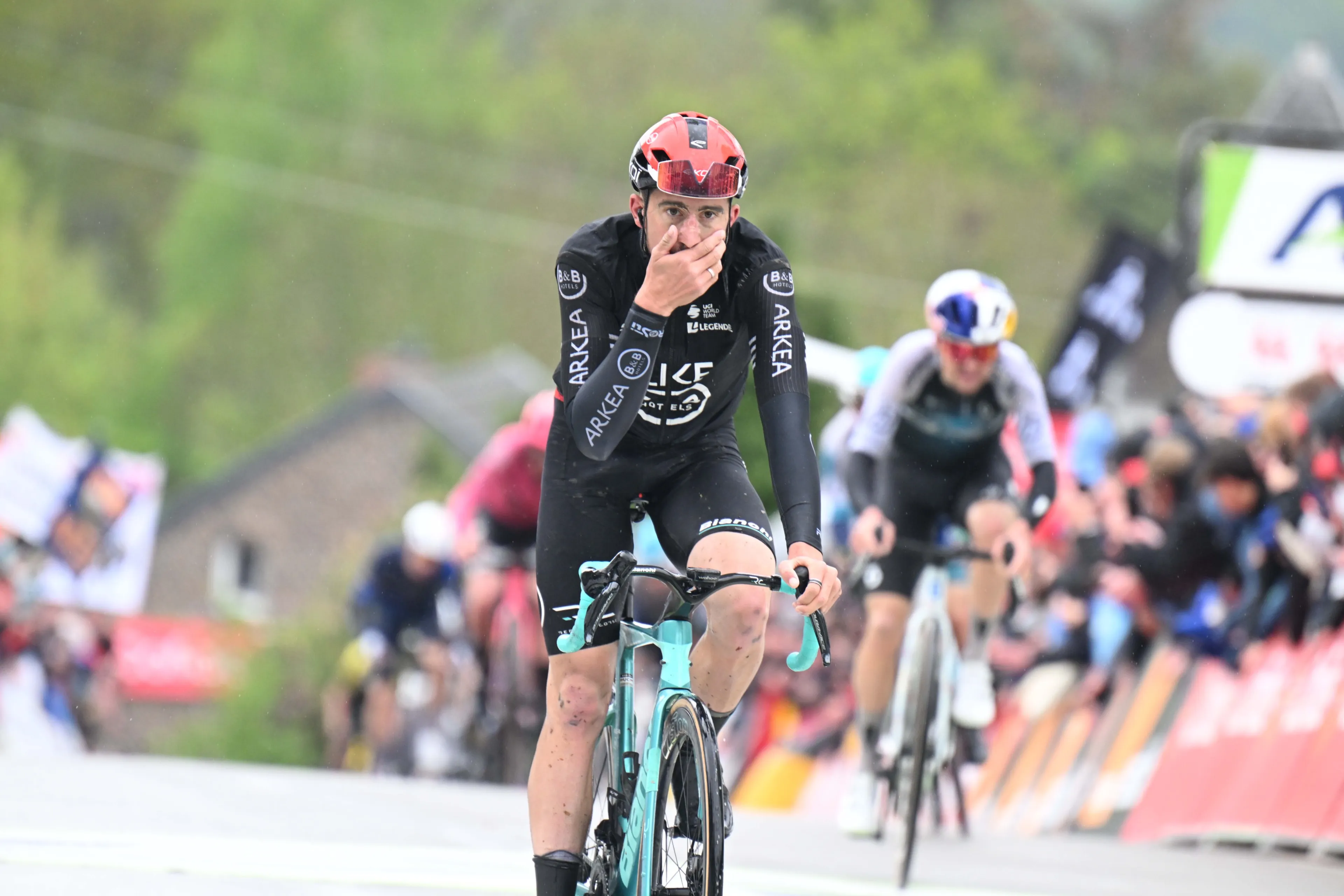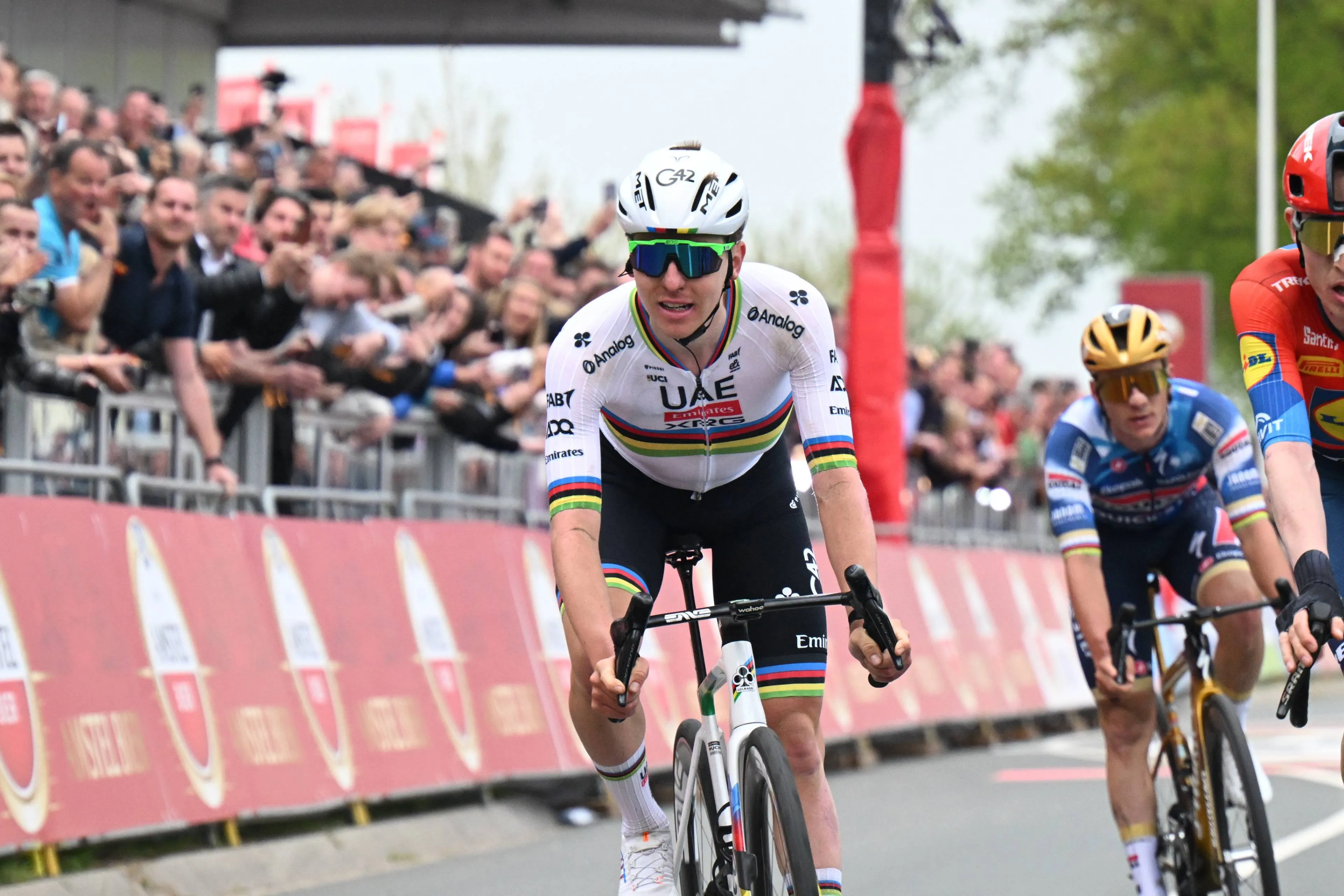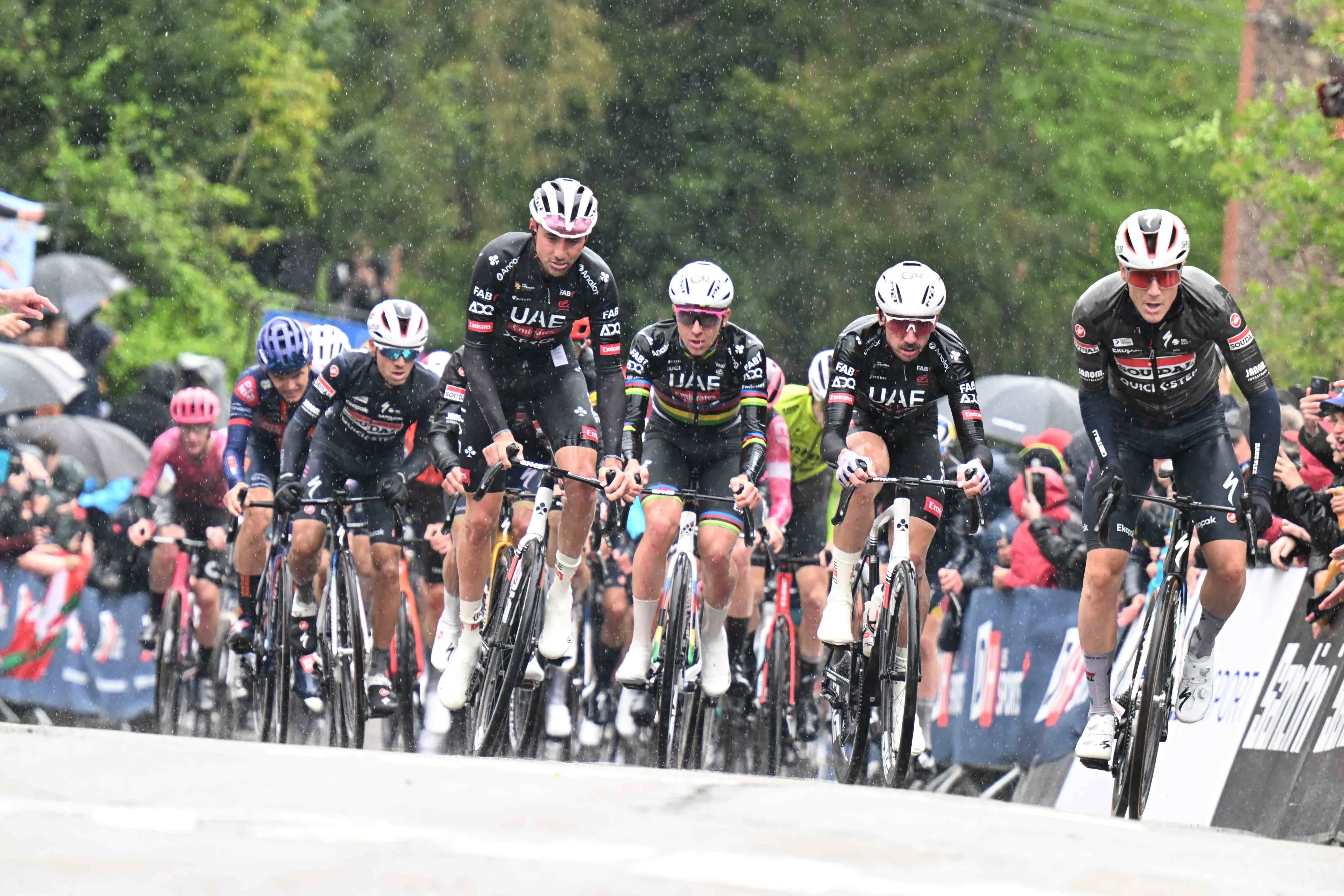Former pro has intriguing perspective on why Evenepoel struggles on steep slopes: "Tadej, by contrast..."
CyclingFriday, 25 April 2025 at 14:59
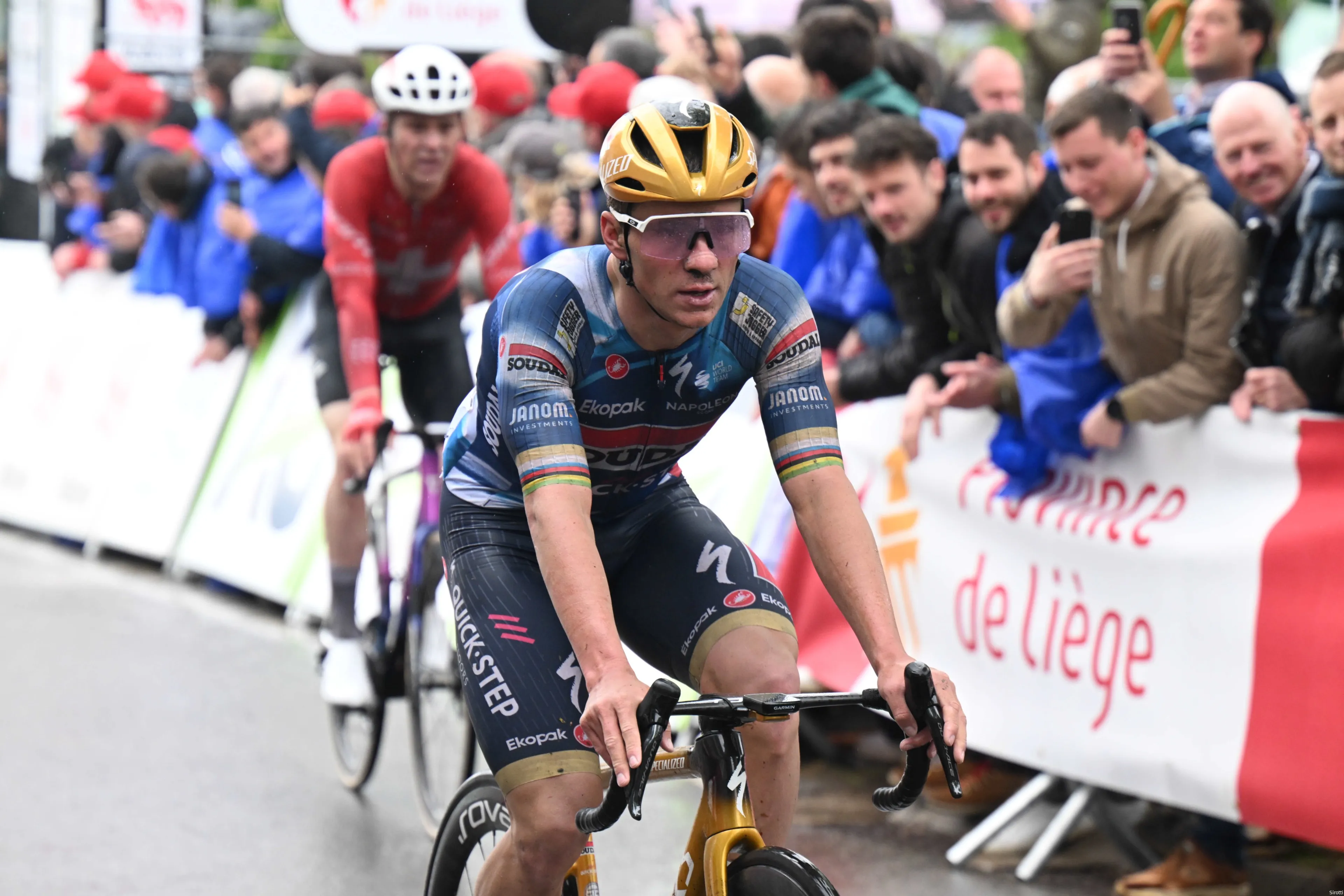
Remco Evenepoel had his team set the pace for much of Wednesday's Flèche Wallonne, but in the end, he could not keep up with world champion Tadej Pogacar on the Mur de Huy. The tactics of Soudal Quick-Step raised eyebrows, while former American cyclist Tom Danielson, who regularly shares his analysis on X after every primary race, also had his say. According to him, there is still plenty of hope for Evenepoel on Sunday in Liège-Bastogne-Liège.
First, Danielson looks at the strategies (announced before the race by Evenepoel) for the Flèche Wallonne. "Remco’s plan was to use his team to make the race really hard and 'wear down the really explosive guys.' While many of us watching on TV hoped that plan might include a long-range attack, I doubt that was ever in the cards."
"In contrast, Tadej’s plan was simple: shadow Remco all day and follow if he attacked. Then, in the final climbs, use his team to make the race hard, stay in position, and unleash his explosive power to win.." For Danielson, there is a lot to be said about the tactics alone. "When you look at the course and compare it to their strategies, Remco’s approach seems... questionable. There aren’t many back to back climbs, and the ones there are, are short. Sure, you can hurt people on them, but not enough to truly deplete your rivals. Just look at Lenny Martinez and Thibau Nys—both visibly struggling at points, yet still finished in front of Remco thanks to their ability to nail those short, punchy efforts."
"It seems like Remco’s better play would’ve been to let Tadej control the race and hope that others launched attacks to isolate him or force him to go long, like at Amstel. Banking on your teammates to wear down Tadej and then beating him up a three-minute climb? That's wishful thinking."
Read more below the photo!
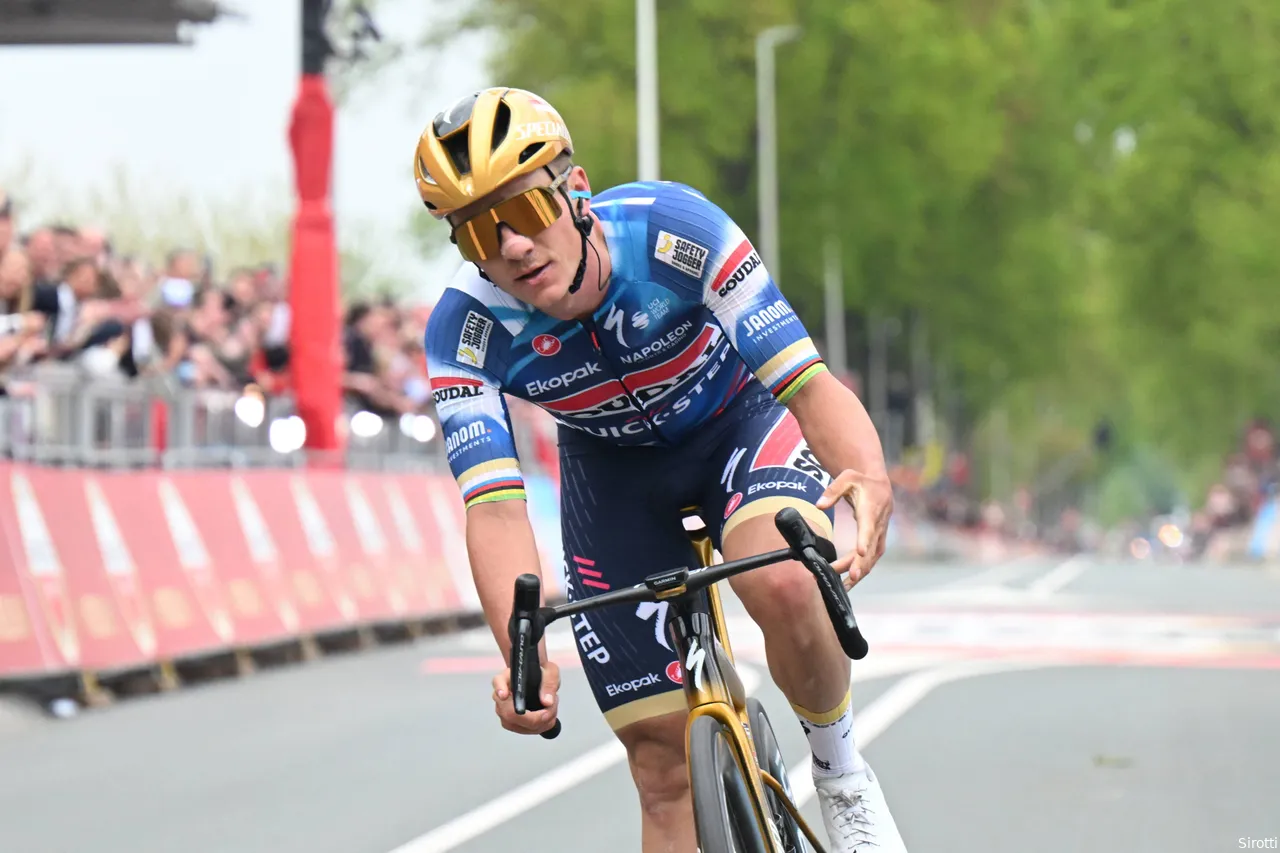
Remco Evenepoel
Danielson has an interesting view on Evenepoel's saddle
After an explosive acceleration out of the saddle, Pogacar was gone, and Evenepoel finished ninth, well behind. For Danielson, however, that is no reason to panic. "Is Remco Cooked? No. While I don’t think his strategy today set him up for success, he’s still a top contender for Liège—an event that suits him much better."
"First, this finish doesn't suit him," Danielson says, looking back at the Flèche Wallonne. "A steep uphill sprint sounds ideal for someone light and powerful, but it’s not his forte. He tends to struggle on the really steep stuff. My theory? His saddle is set farther back to maximize aero positioning like on his TT bike, which isn’t ideal when the road tilts up. Tadej, by contrast, rides forward and stays powerful in the saddle even on crazy gradients."
"Second, I think the cold affected Remco more," Danielson continues his analysis. "While Tadej stayed bundled up in rain gear, Remco had just arm warmers and a vest. It's a small thing, but once your core temperature dips, your body starts burning more glycogen just to stay warm. That flat look on the final climb? I bet that played a role."
"Third, Remco probably spent a lot of emotional energy 'playing' Tadej's rival all day. That mindset is important if you want to reach the next level—but it's also draining. When everything you've built mentally through the race crashes two minutes from the line, the drop is real. That low after such a high effort is brutal. But I think that reset—being back in underdog mode—might actually benefit him going into Liège," said the American.
Read more below the photo!

Tadej Pogacar
Danielson knows how Evenepoel can beat Pogacar in Liège
According to Danielson, there is certainly still hope for Evenepoel in Liège. "In 2022, he finished 43rd in Flèche… and then won Liège that Sunday. This time? He’s better than ever. I believe we’ll see his best performance yet," the former rider predicts good things for the Belgian from Soudal Quick-Step.
Still, Evenepoel will have to contend with the world champion. "Will Tadej be the best rider there? Absolutely. But to have a chance, Remco has to let Tadej shoulder the weight of the race and wait for a mistake. Don’t force it. Don’t try to out-muscle him. Let Tadej take the pressure—and be ready to pounce if the opportunity arises," Danielson concludes his analysis.
Read also
IDL-productions

Tadej Pogacar worried about teammate before and during Flèche Wallonne: "Then I heard he had crashed…"

Course and results Tour of the Alps 2025 | Arensman has to go all out to defend his leader’s jersey in the final stage

Preview Tour of Turkey 2025 | Several favorites from the Low Countries and riders preparing for the Giro
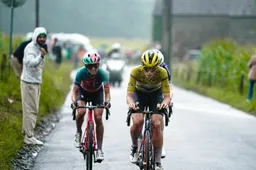
Preview Liege-Bastogne-Liege 2025 - women | Maybe a Tour de France Femmes 2024 rematch?
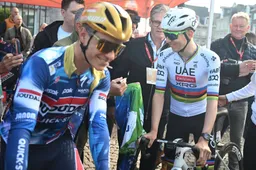
Preview Liège-Bastogne-Liège 2025 | Pogacar and Evenepoel as top favorites in last spring classic
Latest Cycling News

Decathlon dominates in final stage of Tour of the Alps: Seixas lets Prodhomme win, Storer stuns Arensman and takes the GC
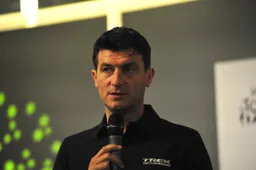
Lidl-Trek's manager shares his moving story about living with lymphoma: "When you see that love..."

Flèche Wallonne top 10 reflects a new trend in cycling, says Van Avermaet: "That has me worried"

Tiberi's coach shares update after his rider abandoned the Tour of the Alps: "As for the Giro..."

Pidcock and Q36.5 head to Liège with confidence: "If we ride like that on Sunday, Tom will be in the mix for the win"
Popular Cycling News

Tadej Pogacar worried about teammate before and during Flèche Wallonne: "Then I heard he had crashed…"

'Frustrating day’ for Soudal Quick-Step as Evenepoel admits: "I didn’t have the explosivity to fight for the win today"

Shivering from the cold, Pidcock builds confidence ahead of Liège with podium finish in Flèche Wallonne: "Everyone always says it's a race that suits me"

‘The Italian Wout van Aert’ stuns with wild solo ride: “These Giro-style climbs suit me perfectly”

Course and results Tour of the Alps 2025 | Arensman has to go all out to defend his leader’s jersey in the final stage
Latest Comments
- Such negative comments that are truly inappropriate and actually ridiculous. He sounds like an old man, bitter that he can't race anymore. Why can't he just be gracious? Or just shut up. Instead of howling for attention, in such a rude manner. Must be Dementia creeping in. We are all living in the Now. Records are there, and some are being broken, some are unapproachable. If he doesn't like it, and it makes him sick, maybe he ought start watching some other sport. Don't want the old mans health to be upset.
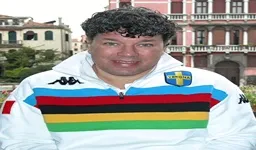 reemmo031-03-2025
reemmo031-03-2025 - Roger De Vlaeminck inspires me to create a new beer: "Bitter Old Twat Belgian".JackInhof31-03-2025
- Shoot, I'll ride it for 1/10 of what his pay for that day is😅Veganpotter30-03-2025
- What is this? The Lance Armstrong daily cheaters channel? I could care less about Johan and Lance the seven times cheater. Greg Lemond was right all along, Why don't you write about that instead of these two knuckleheads.velodrone28-03-2025
- Are we all doomed to hear from Lance Armstrong and Johan bruneel until the end of time? It's not enough the stain they left on cycling? Do we have to see that shadow forever?bigyakman26-03-2025
- I am not sure if it is the hardest to win. In Flanders and Roubaix well before the finish the Peleton will be decimated and the race will normally be won by the best rider of the day or maybe 2nd or 3rd in case of a mechanical or unlucky break especially in case of Roubaix. In San Remo just before the finish there will still be several riders in contention and they are hard to ditch. For the best riders it is a race hard to win since it is not so selective. But if you are not a top 5 rider but still a top 10 rider this race is your best change to win. You will see more Milan San remo Winners with only 1 monument win than any other monumentsJoostmehrtens19-03-2025
- "fap fap fap oh Lance oh oh OHHHHHHH" again. Does he pay you to dredge up people with nice things to say about him? He was an giant a$$hole to people. It is a fact. Whatever his contrition about the doping, he is unapologetic about being a giant a$$hole to people. (Why yes, I do only login to complain. *I* am however only a giant a$$hole to people who laud giant a$$holes.)ericjensenridesbikes25-02-2025
- Remco is still very young. And injuries can absolutely keep you from overdoing it and getting worse. The recent Remco accident didn't keep him from being able to ride a recumbent inside. Wout's knee is a different story thoughVeganpotter23-01-2025
- Van der Poel style is winning by a half a lap and leading the race from the end of the second lap.
 Barnes127420-01-2025
Barnes127420-01-2025 - If she thinks talent alone will put her there she will not see many podium finishes much less a GC finish.....work as a team utilizing tactics to consistently be at the top.Germanrazor10-01-2025
